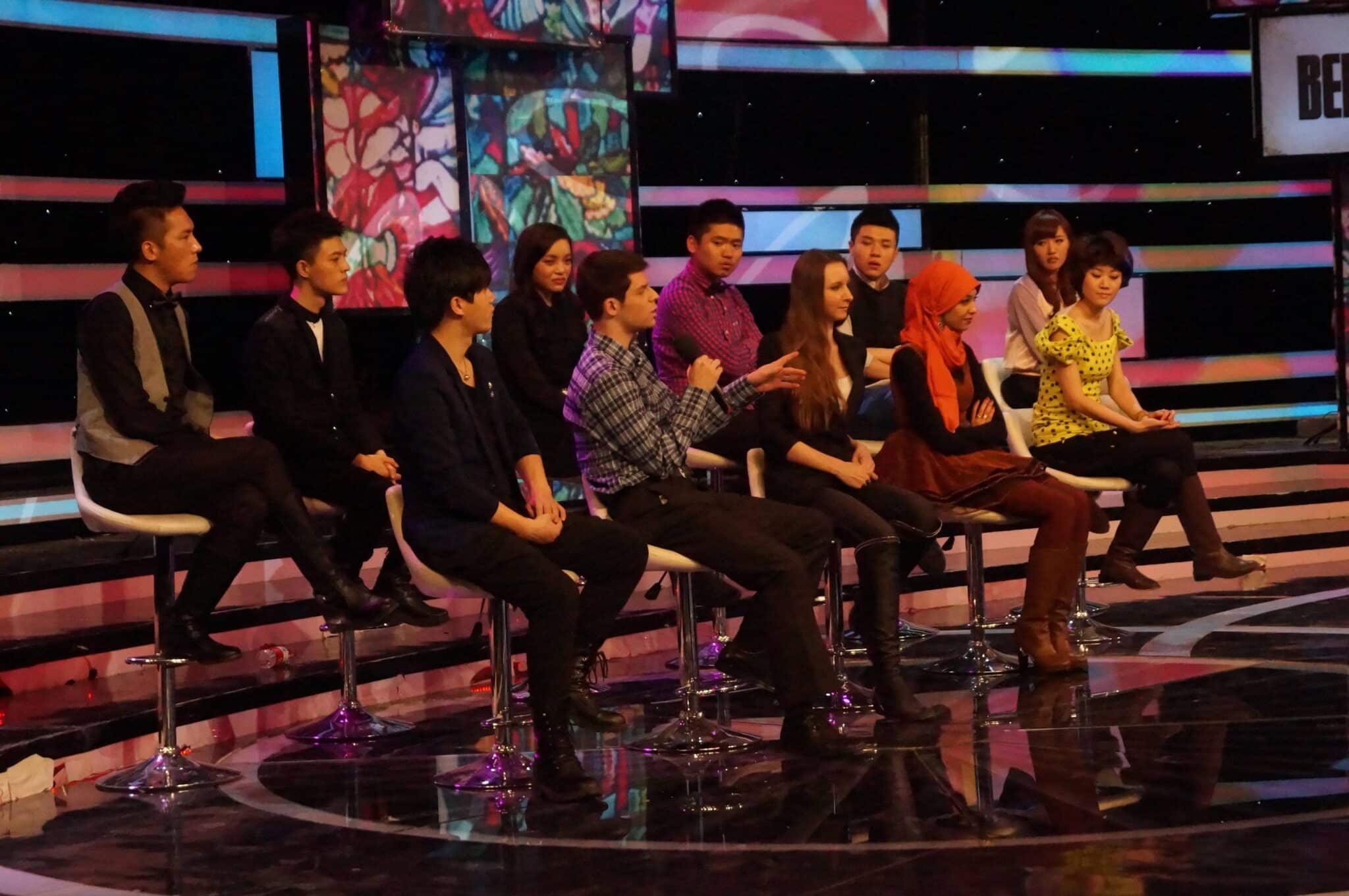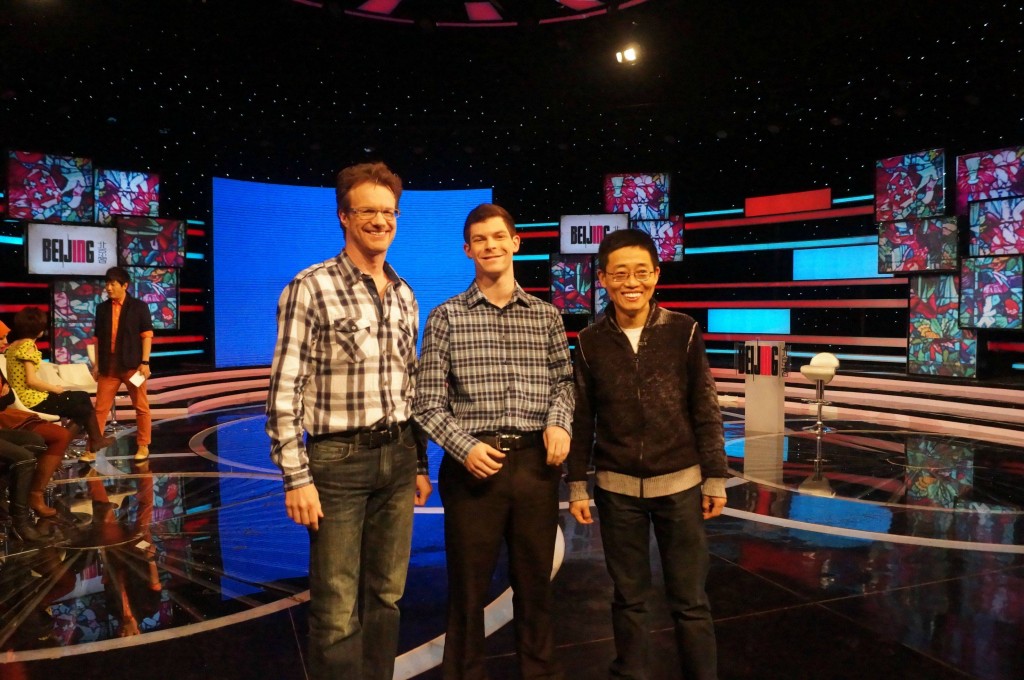I am not a person who is often starstruck, but this past Monday all bets were off when I found myself on a television show with comedy legends Da Shan and Joe Wong. We had been invited on the show to discuss intercultural comedy, exactly in line with my Fulbright project’s focus.
As I excitedly chatted with the two comedians, I realized that the people I am most interested in meeting are no longer people that my friends at home would know. In China, both Da Shan and Joe Wong are household names, although they arrived at that status by very different paths.
Da Shan is a Canadian (his English name is Mark Rowswell) who amazed Chinese all over the country when he performed Xiangsheng on television in the late 80s and early 90s. At the time, it was thought (especially in the countryside) that no foreigner spoke Chinese fluently enough to perform Xiangsheng, and as so his emergence as a media personality is a phenomenon particularly tied up with lives of all foreigners in China.
Da Shan is frequently held as the epitome of the ability of foreigners to learn Chinese—no matter what your language level is, Chinese people choose to compliment you by saying you are (almost) as good as Da Shan.
Joe Wong is the anti-matter to this equation—a Chinese national from Jilin province in the northeast who moved to America in his mid-20s to study for a Phd in Biochemistry. After living the Chinese dream—moving to America, getting a high degree, an excellent job, and eventually becoming an American citizen—he began to frequent sports bars to perform stand-up.
Years later his stand-up, much of the content of which revolves around his observations as a first-generation immigrant, earned him a spot to perform at the White House Correspondent’s dinner. There, he performed for Vice President Joe Biden and the White House press corps. “I read your autobiography, and today I have a chance to meet you,” he told the Vice President. “I think the book was much better.”
The discussion on the show revolved around each other their shared experiences learning the comedic landscape of a foreign nation. Both agreed there was no clear-cut “Chinese humor” or “foreign humor,” but rather, humor is a reflection of the culture of a country. Where cultures are similar, there can be shared jokes; where they differ, there can be jokes funny to one party and not to the other. Joe Wong mentioned a joke about parallel parking that flopped in China because what counts as crazy driving behavior in America is an everyday occurrence here.
They both agreed that while the styles of stand-up and Xiangsheng differed, the mode of delivery of a joke is just a “文字问题,” a matter of words. Clearly, there is some core to a joke, some logical inversion or social observation, which can be molded and then presented to the audience. Whether it is done in the style of Xiangsheng or by a stand-up comedian is perhaps irrelevant when trying to consider why the joke is funny in the first place.
While I rambled on a bit when I spoke—again, I need to remind myself that brevity is the soul of wit—I found my own thoughts stimulated by the whole of the discussion. If humor is a reflection of culture, then the way for me to become a better comedian is to better understand culture, and that’s exactly what I hope to be doing this year.
How can we use comedy to draw China and America closer? It’s not going to be easy, but I feel like joining into conversation with these two experts brought me a step further on the path of discovery. The end is nowhere near in sight—maybe there is no end—but it felt excellent to have planted my feet down in a solid step forward. Perhaps by understanding the culture here deeply, I can find those overlapping regions of culture, and with a comedic touch, make people realize we have much more in common than we might think.
我向来都不是一个追星的人,但自从上周一我和喜剧演员大山,
当我非常兴奋的和他们俩聊天时,
大山是加拿大人(他的英文名字是Mark Rowswell)。 他在八十年代末九十年代初在电视上表演相声,
大山经常被当作外国人学中文的典型,
黄西则是一个正好相反的例子。他来自中国北方的吉林省,20多岁
很多年来,
我们参加的节目内容是让我们分享自己有关学习一个外国喜剧的经验
他们都同意虽然脱口秀和相声的形式不同,
虽然我说话的时候天马行空,但我要提醒自己简洁是智慧的灵魂。
我们怎样能利用喜剧将中国和美国更加接近?



